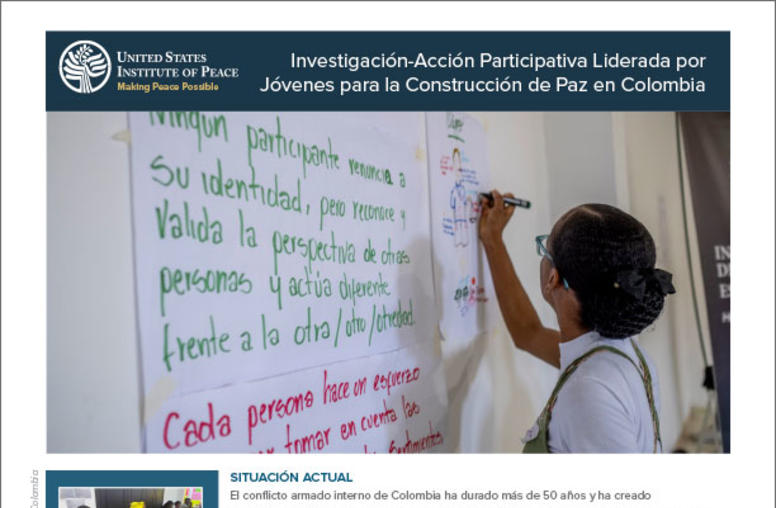Colombia Peace Forum: Elections & Peace Processes in Colombia
How will the contentious 2018 election cycle affect Colombia’s peace efforts?
While threats of violence marred recent legislative campaigns in Colombia, the March 11 election was Colombia’s most peaceful in decades. Although the FARC’s new political party underperformed, its comprehensive demobilization was palpable and the National Liberation Army (ELN), the country’s second-largest rebel group, respected a temporary unilateral ceasefire. For the first time in 50 years, ballots were cast freely throughout the country and not a single incident of violence was recorded.
With the composition of Colombia’s next Congress set, jockeying and coalition-building among the main candidates is fully underway ahead of the May 27 presidential polls. The outcome will have important implications for the precarious implementation of the 2016 FARC peace accord, which has yet to tackle key political and agrarian reforms, and the next president will also have to chart a way forward for the dialogues with the ELN as talks in Quito race against the clock to design a new indefinite bilateral ceasefire and cement the parameters for public participation in future negotiations.
On April 16 from 9:30-11:30 a.m., the U.S. Institute of Peace hosted a discussion on security and protection throughout the electoral process, analysis of the impact the outcome may have on the implementation of the FARC peace agreement, and the implications for the ongoing process with the ELN. The event was be livestreamed, and translation will be provided.
To review the conversation on Twitter, use #ColombiaPeaceForum.
Speakers
Alejandra Barrios
Director, Electoral Observation Mission and former President of the Global Network of Domestic Electoral Monitors
Juanita Goebertus
Colombian Congresswoman, Former Member of the Government Peace Delegation with the FARC
Mark Schneider
Senior Advisor, Center for Strategic and International Studies
Jonas Claes
Senior Program Officer, Preventing Election Violence, U.S. Institute of Peace
Steve Hege, Moderator
Senior Program Officer, Security & Justice, U.S. Institute of Peace


